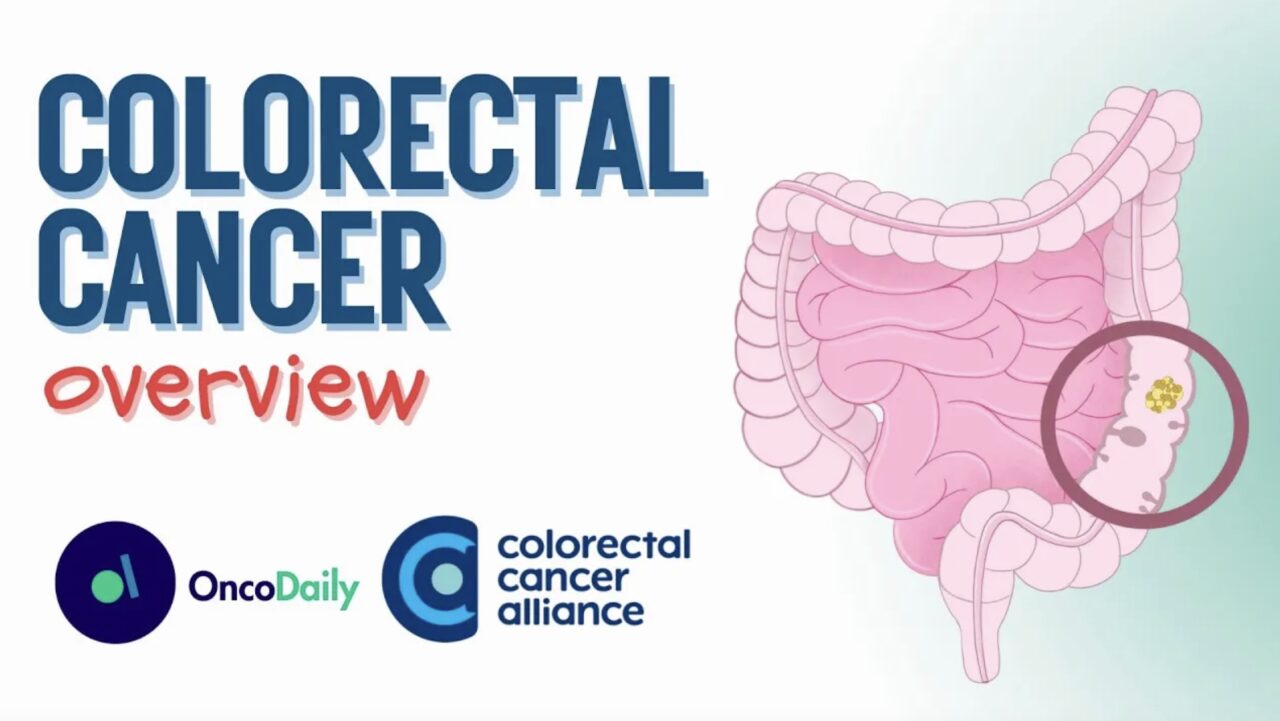Hello, welcome to our course on colorectal cancer. In this video, we’ll provide an overview of colorectal cancer, including what it is, who is at risk, common symptoms, prevention, diagnosis, and treatment. So, let’s begin.
Colorectal cancer, also known as bowel cancer, is a type of cancer affecting the colon or rectum. It’s among the most common cancer types globally. Bowel cancer typically starts as small, benign growths called polyps, which, if left untreated, can develop into cancer over time.
This process usually takes around 10 to 15 years. There are several modifiable, ones you can influence, and non-modifiable, ones you cannot influence, factors that increase the risk of developing colorectal cancer.
Modifiable factors include being overweight or obese, alcohol use, smoking, diet, type 2 diabetes, sedentary lifestyle.
Non-modifiable factors include age, sex, race and ethnicity, family or personal history of certain types of cancer, certain inherited genetic syndromes, radiation, family or personal history of colorectal polyps. Patients with colorectal cancer may have no symptoms at all. This is why screening and early detection are so important.
If symptoms exist, they usually include changes in bowel habits, such as diarrhea or constipation, blood in the stool or dark-colored stool, rectal bleeding, abdominal discomfort or cramps, general weakness or fatigue, unexplained weight loss. There is no method that prevents colorectal cancer 100%. However, there are ways to minimize the likelihood of colorectal cancer development and progression.
So, here are steps you can take to reduce your risk. Reduce the risk of cancer development. Maintaining a healthy diet.
Eating plenty of fruits, vegetables, and whole grains as well as limiting red and processed meats.
Being physically active. Do 30-60 minutes of moderate exercise a day, 5 days a week.
Avoiding tobacco products. Avoiding alcohol. It’s best to be alcohol-free in general.
For those who can’t, the number of drinks should be limited to 1 per day for women and 2 per day for men. Maintaining healthy body weight. Generally, it means that your BMI should be between 18.5 and 25.
Taking non-steroidal anti-inflammatory drugs, NSAIDs, taking a daily low dose of aspirin or other NSAIDs such as ibuprofen, Advil, and naproxen, Aleve, may help reduce your risk of colorectal cancer and polyps.
Please note that there are risks associated with taking aspirin daily, and it is recommended that you discuss the potential risks and benefits with your doctor before starting therapy. Reduce the risk of progression and death.
Start regular screening at age 45 or earlier if you are at high risk of colorectal cancer. The goal of screening is to detect polyps and remove them before they develop into colorectal cancer or to identify colorectal cancer in its early stages, when the disease is potentially curable, and therefore prevent progression and death.
Colorectal cancer screening methods include colonoscopy, a gold standard, fecal occult blood test, looking for blood in the stool, sigmoidoscopy, for lower section of colon and rectum, virtual colonoscopy, CD colonography, at-home screening methods, fecal immune test, FID, and stool DNA test.
If screening reveals abnormalities, additional diagnostic tests may be performed to confirm the diagnosis. There is a high chance of treating colorectal cancer in its early stages.
Treatment options depend on tumor location, cancer stage, and diagnosis and may include surgery, chemotherapy, radiation therapy, targeted therapy, immunotherapy, combination of several treatment options, palliative care.


